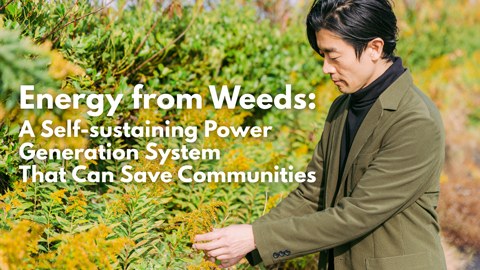In Pakistan, agriculture—a major part of the country’s economy—has experienced grave destruction due to swarms of desert locusts. Japan has taken action to assist the beleaguered farmers.


Swarms of locusts caused severe damage to agricultural land in Pakistan. XINHUA/AFLO
Countless locusts form swarms and take to the air, totally blocking out the sky. Not satisfied with just eating the vegetation in forests and savannahs, they migrate from farm to farm, devouring produce wherever they go. The formation of the locust swarms every few decades is related to an imbalance in the delicate natural environment caused by extreme weather events—droughts, heavy rains, and the like.
Swarms of desert locusts that formed in eastern Africa and the tip of the Arabian Peninsula from 2018 to 2019 arrived in Pakistan in both 2019 and 2020. They damaged a total of 17.8 million hectares of farmland in the country, making it the largest and most destructive locust disaster ever.
The Japan International Cooperation Agency (JICA), which has long been implementing agricultural cooperation activities in Pakistan, started to provide emergency support in 2020—primarily aid to small farmers who had suffered heavy damage from the locusts. HAGIWARA Ritsuko of JICA’s Pakistan Office says, “At first, agriculture extension officers wanted us to send pesticides to control the locusts. However, considering the various circumstances brought about by the COVID-19 pandemic such as the inability to provide proper guidance on how to use pesticides, we decided to distribute wheat seeds in time for the fall 2020 planting season to help restore farmers’ livelihoods in the affected areas.” Therefore, instead of pesticides, JICA sent seeds and fertilizer to 3,000 small farmers. Harvesting the crops from these seeds should provide enough income to offset the locust damage.
To implement the support, JICA leveraged the network that it had built up in the country over the years. It has enlisted help from Pakistan’s local government officials and technical experts to decide which farmers should receive the aid and how to fairly select, store, inspect, and distribute the supplies. The transport of seeds between provinces—otherwise limited on account of the COVID-19 pandemic and Pakistan’s food policies—was thus smooth.

JICA distributed wheat seeds and fertilizer to 3,000 Pakistani small farmers, who also received instruction on fertilizer use. JICA

The signing ceremony for a partnership between JICA and the FAO. Due to COVID-19 travel restrictions, meetings before the ceremony were held online. Hagiwara is shown standing second from right in the back row. JICA
JICA has also partnered with the Food and Agriculture Organization of the United Nations (FAO), which possesses specialized knowledge on controlling locusts. As part of a one-year plan that began in March 2021, they have enhanced the monitoring and control capabilities of government officials in Pakistan to help them quickly identify new locust groups and share information about them nationwide, which will lead to more effective countermeasures, such as the timely distribution of pesticides. An information network has been set up across Pakistan to measure locust density and predict swarms by collecting photos with GPS metadata taken and sent in by local observers. AZEGAMI Tomohiro from the JICA Economic Development Department says, “We need to keep up a steady pace of training to prepare for future locust swarms. I hope to use this experience going forward so that we can support even more countries when the next locust swarm strikes.”
Although the next outbreak of locusts may be decades away, Japan will continue to offer support to Pakistan and elsewhere to help people avoid similar difficulties whenever they may occur.

Local government officials conducted locust-control operations with the supplies provided by the FAO. A training program gave instruction on how to find locust eggs and larvae, and so forth. FAO

Trial application of the latest technologies, such as using drones to monitor locusts and spray pesticides, is also in progress. FAO
> Find out more about JICA's efforts to support Pakistani farmers





























